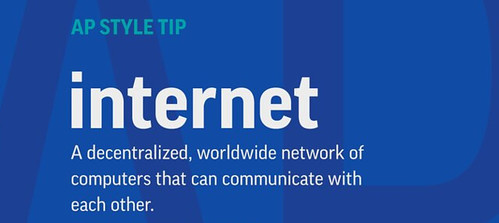Γεια σας
information highway/superhighway
n
1. (Electronics & Computer Science / Telecommunications) the concept of a worldwide network of computers capable of transferring all types of digital information at high speed
2. (Electronics & Computer Science / Telecommunications) another name for the Internet Also called information highway
Γνωρίζει κανείς πώς λέμε στα ελληνικά αυτόν τον όρο;
information highway/superhighway
n
1. (Electronics & Computer Science / Telecommunications) the concept of a worldwide network of computers capable of transferring all types of digital information at high speed
2. (Electronics & Computer Science / Telecommunications) another name for the Internet Also called information highway
Γνωρίζει κανείς πώς λέμε στα ελληνικά αυτόν τον όρο;


